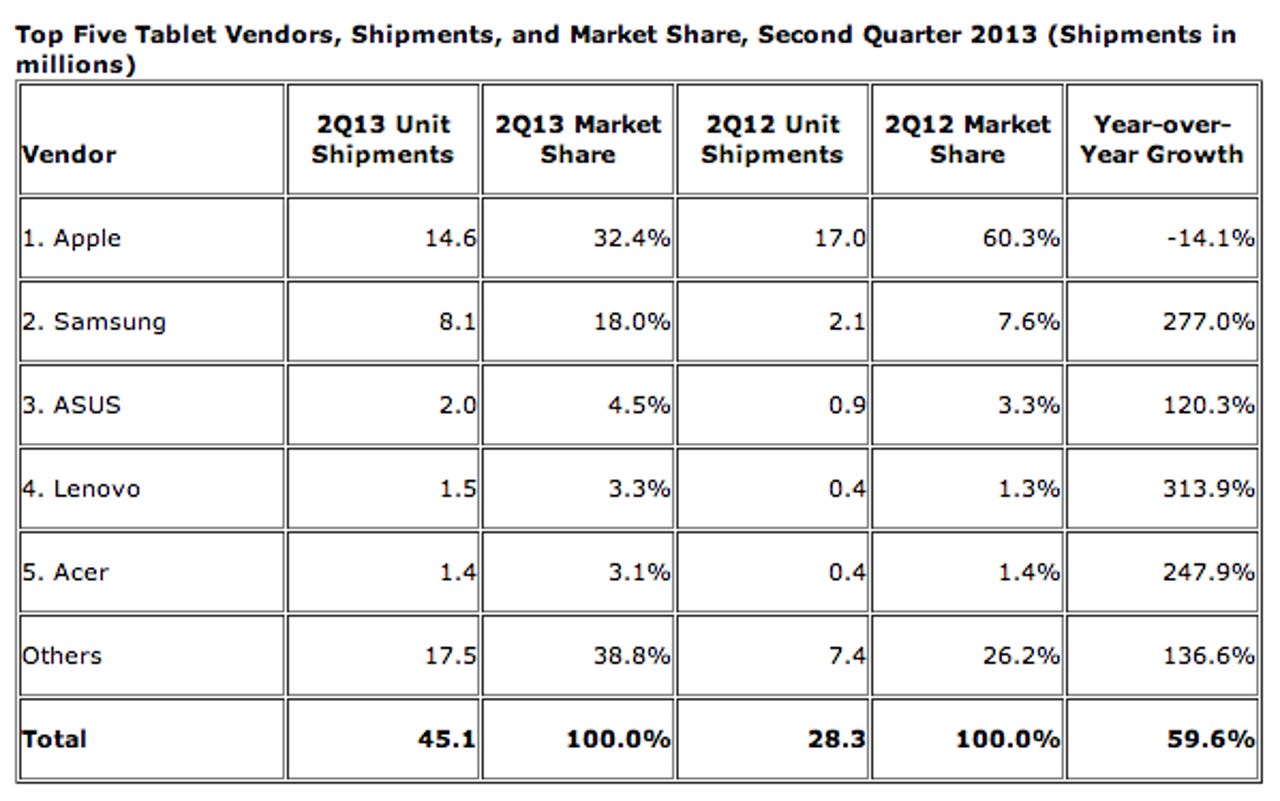Tablet shipments show signs of slowing in Q2

Worldwide tablet shipments slowed in the second quarter, according to latest figures by research firm IDC, suggesting the post-PC market may be showing early signs of tablet fatigue.
Preliminary data shows a sequential decline in total shipments by just shy of 10 percent on the first quarter of 2013. It's good news year-over-year: manufacturers shipped 45.1 million devices, up by more than 59 percent on the same quarter a year earlier.
The tablet slowdown hinges to an extent on the lack of an expected next-generation iPad release earlier this year.

According to the figures, Apple saw a lower-than-expected second quarter decline with 14.6 million shipments compared to 19.5 million in the first quarter. Apple is expected to announce a fifth generation tablet during the second half in line with its annual release cycle, beginning November, in time for the December holiday season where sales are typically far higher.
Samsung in second place shipped 8.1 million units down from 8.6 million in the first quarter — though up by four-times on the year ago quarter.
Meanwhile, Asus in third place sold 2 million units in the second quarter, down from 2.6 million in the quarter prior.
The data shows that not all tablet makers suffered a slowdown. Chinese PC and tablet maker Lenovo jumped back into the top five, generating 1.5 million shipments, a three-fold increase on the second quarter of 2012. Acer came close to matching Lenovo's shipments, with 1.4 million tablets out during the quarter, more than doubling its share on the same quarter a year earlier.
IDC's Ryan Reith noted in prepared remarks that the tablet market is "still evolving," and noted that Windows 8-based tablets are rising in share, despite Android's long-standing hold over the market.
"Apple aside, the remaining vendors are still very much figuring out which platform strategy will be successful over the long run," Reith noted.